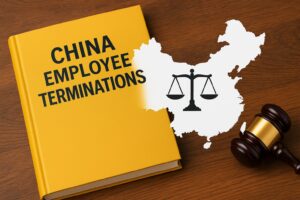Table of Contents
ToggleA Lesson for Lawyers and Clients in International Contracts
I have never handled a DUI (driving under the influence), a divorce, or drafted a will—not even for friends or family. I have never negotiated with a union, drafted a pension plan, or handled a bankruptcy. I could go on listing legal matters I’ve never handled and will never handle. And there’s a reason for this.
In some areas of the law, I am either wholly unqualified, or there are other lawyers far more qualified and efficient. My taking on those matters would be a disservice to my clients because I would spend too much time learning on the job and still wouldn’t do as good a job as a lawyer who does these things all the time.
Specialization matters.
The Cost of Not Hiring the Right Expertise
I wish more lawyers and businesspeople thought like this when it comes to drafting international contracts because I often find myself cleaning up their messes. I don’t mind fixing mistakes, but I hate seeing clients pay twice for legal work.
Even worse, I hate seeing them pay 10 or 1,000 times more in litigation to fix a problem than they would have paid to have a competent international lawyer draft a strong contract in the first place.
I’m writing this blog post because, twice in the last few weeks, I had to explain to companies how the “lawyers” they used for their China contracts put them into trouble and why they now need to do many different things to try to ameliorate (not eliminate) the damage caused
Common International Contract Mistakes
International contracts aren’t just about translating legal terms. They require deep knowledge of the foreign country’s laws, culture, and business practices. Using a domestic lawyer to draft or review a contract for a foreign market is inefficient, unwise, and often tremendously costly.
Below are some of the most common mistakes our international lawyers see.
Case Study: How Missteps in China Contracting Can Derail a Product Launch
A few weeks ago, in Beware the Online China NNN Agreement, I wrote about the dangers of using online providers for China NNN Agreements. Just since then, three companies have contacted me with concerns about their NNN Agreements, and all three agreements were outright disasters.
The most interesting of the three involved a U.S. company trying to manufacture custom-designed products in China. This particular matter nicely illustrates how hiring the wrong legal help and using the wrong agreements can leave a company vulnerable when it comes to intellectual property (IP) and negotiating power.
This American company hired a “Chinese lawyer” through a well-known online services marketplace to draft their China NNN (Non-Disclosure, Non-Use, and Non-Circumvention) Agreement. After reviewing these agreements, I was immediately convinced that the person who drafted this NNN Agreement was a con artist. This individual charged the American company a shockingly low rate to draft the NNN Agreement, only to then get the Chinese manufacturer to pay him to draft an agreement that would make it easy for the Chinese manufacturer to steal the American company’s IP.
The NNN Agreement Was NOT the Right Contract
The American company had asked for an NNN Agreement because it believed that an NNN Agreement would protect its interests, but in reality, this was the wrong type of agreement for its situation. My law firm receives hundreds of requests for NNN Agreements every year, and in about half of those cases, an NNN Agreement will either be worthless or there are better (and often cheaper) ways for the company to achieve its goals.
This American company didn’t have a finalized product design; instead, it had an idea that had been refined through back-and-forth collaboration with its Chinese manufacturer. Therefore, this company needed a China Product Development Agreement—a contract that clearly states that any product designs resulting from the collaboration would belong to them. Without such an agreement, Chinese law often assumes that the manufacturer holds rights to the designs, putting the company at a severe disadvantage.
A Worse than Worthless NNN Agreement
The NNN Agreement provided to the American company was one of the worst I had ever seen. It was designed to appear favorable to the U.S. company, but nearly every provision had been crafted to benefit the Chinese manufacturer and to discourage the American company from suing. One of the most problematic clauses concerned the official language of the contract. It stated that both the English and Chinese versions of the contract were official, but the Chinese version would prevail in case of inconsistencies.
This seemingly minor detail could have major legal consequences, as it would require analyzing both versions and determining how inconsistencies should be interpreted. This would essentially require analyzing three contracts: the English version, the Chinese version, and a hybrid interpretation of the two. To do this properly, the American company would need a lawyer fluent in both languages, adding substantial time and expense. The ambiguity would make enforcing the agreement complex and costly, far more so than drafting a proper agreement from the start.
The contract also required that if any conflict arose, the parties would need to spend 90 days trying to resolve it between themselves, then mediate the dispute, and finally arbitrate in London before three arbitrators. Yes, in London, even though the American company is based in the United States. The likely reason for choosing three arbitrators in London? Arbitrators there are notoriously expensive.
The Core Problem: Lack of Ownership of the IP
But the biggest issue facing this American company—that didn’t need an NNN Agreement in the first place—was that it lacked an agreement stating that any designs created during the collaboration between them and their Chinese manufacturer would belong to them. A Product Development Agreement would have specified that the resulting IP belonged to the U.S. company, but without it, the IP almost certainly now belonged to the Chinese company. On top of all this, the NNN Agreement made it nearly impossible for the American company to prevail in any lawsuit involving IP, and very, very expensive to even try.
Trying to Regain Control with a Product Ownership Agreement
The company’s only option now was to ask the manufacturer to sign a Product Ownership Agreement, stating that all IP related to the custom product belonged to them. However, Chinese manufacturers virtually never agree to such terms after they’ve gained leverage by developing the product. Sometimes they will agree to sign such an agreement if the foreign company agrees to purchase an excessively large quantity of products over five years, at a highly inflated price.
I suggested to the American company that it ask its Chinese manufacturer if it would agree that the American company owned the IP in the collaborative product. The Chinese company said it would need to see such an agreement before knowing whether it would sign it, and the American company asked me to draft such an agreement. I told the American company that the odds of the Chinese company signing what I would draft were so low, that it would be pointless to pay for such an agreement. I strongly suspect that, in the meantime, the Chinese company had already manufactured and sold the American company’s product.
No Intellectual Property
Not only did the “lawyer” who drafted the NNN Agreement harm the American company with its bad contract, but the same “lawyer” charged to file a design patent for them. The American company asked me whether this patent would protect their designs, without a Product Development Agreement. My response was that we would need to examine the patent filings first. But upon investigation, we discovered that no patent had ever been filed. The so-called lawyer had simply pocketed an additional $3,000 for a patent filing that never happened.
What You Can Learn from This
This case study demonstrates the risks of cutting corners in international contracting. The above mistakes—hiring unqualified legal help, using the wrong type of agreement, and failing to protect IP early on—led this company to lose control over its own product.
Other Common Mistakes in International Contracts
There are several recurring mistakes we see companies make when dealing with international contracts, particularly in China.
Mistake 1: Using U.S. Terms for China
One company approached us with a contract it had for its former Chinese employees after those employees sued the company in China. The U.S. company assumed that specifying U.S. courts for dispute resolution would protect them. They paid a U.S. lawyer to draft this document.
Our advice? Request a refund from the U.S. lawyer and aim for a settlement. The agreement violated multiple Chinese employment laws. Even if the lawyer knew little about Chinese law, they should have known that Chinese courts heavily favor employees, especially when dealing with foreign employers. Employment contracts in China require local expertise to avoid these kinds of issues.
Mistake 2: Using the Wrong Agreement
We regularly have companies ask us to draft a contract they either don’t need or that is incomplete without additional protections. It’s critical to use the right type of contract for your specific needs and to adapt it to the business and legal landscape of the foreign market.
Mistake 3: No Written Contract
Many companies come to our international dispute resolution team for help after paying for and receiving subpar products from Chinese factories. Without a formal contract, they usually have no leverage to demand replacements or refunds, and they’ve made winning a lawsuit far more difficult than if they had a contract that specified clear product standards and requirements. See How to Avoid China Manufacturing Problems: A Primer.
Conclusion: Protecting Your Business from Costly Mistakes
In international contracts, clarity, customization, and enforceability are essential. The stories shared here highlight how a poorly drafted contract can lead to a legal quagmire, significant financial losses, and damaged business relationships.
The real cost of cutting corners often becomes apparent only when problems arise—when an agreement proves unenforceable or when intellectual property rights are compromised. At that point, companies typically find themselves spending far more to resolve disputes than they would have if they had invested in proper legal guidance from the start.
If you’re tempted to cut corners or believe hiring a specialized lawyer is an unnecessary expense, think again. The future of your business could depend on the fine print of a well-drafted contract. Investing in a qualified international contract lawyer isn’t just a smart choice; it’s often the only choice if you want to protect your business and succeed in the global market.
Don’t wait until you’re facing a contract disaster. Seek expert counsel, tailor your contracts to your unique needs, and protect your business from avoidable pitfalls. In international commerce, knowledge is power, and the right legal partner can make all the difference. An initial investment in specialized expertise can be the difference between a successful venture and a costly failure.

























